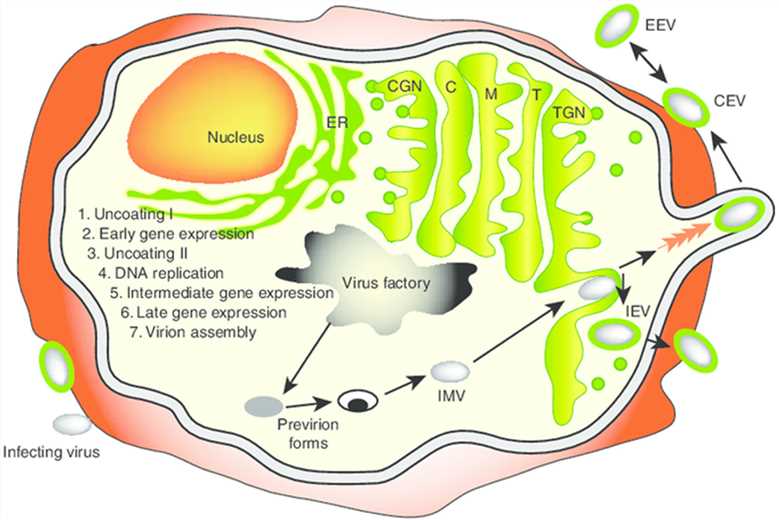Efficacy Enhancement of Oncolytic Vaccinia Virus
With our well-established platform, the experienced scientists here at Creative Biolabs are dedicated to helping you develop the oncolytic vaccinia virus with enhanced efficacy. Our high-quality enhancing efficacy services will greatly contribute to the success of your projects.
Enhancing the Efficacy by Combination Strategies Including Oncolytic Virotherapy
Oncolytic viruses are native or recombinant viruses that can selectively kill cancer cells and associated stromal cells directly by oncolysis, indirectly by immune-mediated clearance of cancer cells, or targeting of tumor vasculature. Thus, oncolytic virotherapy provides an ideal therapeutic platform for cancer treatment. Moreover, the oncolytic vaccinia virus represents an attractive combined platform because of its engineering feasibility and confirmed safety profiles. Over recent decades, a host of combination strategies for natural or engineered oncolytic vaccinia virus has been tested in laboratory and clinical trials. Accumulating clinical data demonstrate that the potency of the oncolytic vaccinia virus could be increased by combination with other anticancer drugs.
Vaccinia virus is a large DNA virus with a genome size of approximately 190 kb that can insert long fragments of foreign genes. Local expression of diverse transgenes of interest is possible by the insertion of the functional genes into the vaccinia virus genome. Thus, vaccinia virus can express functional genes such as therapeutic transgene, a tumor-associated antigen, immunoregulatory molecules to overcome challenges associated with antitumor treatments and show enhanced tumor selectivity and therapeutic efficacy.
 Fig.1 Vaccinia virus life cycle. (Guo, 2019)
Fig.1 Vaccinia virus life cycle. (Guo, 2019)
Combining oncolytic virotherapy with therapeutic transgenes constitutes a promising approach to enhance oncolytic efficacy. Furthermore, as a gene carrier, the oncolytic vaccinia virus can be used to safely deliver therapeutic transgenes to tumor sites because of their tumor-selective replication, an advantage that helps avoid either uncontrolled off-tumor toxicity or other problems associated with systemic delivery.
Vaccinia virus has been widely used as a tumor antigen expression vector for several reasons: they are easily generated by homologous recombination; the genome is stable; the administration is simple; the virus can be used across wide populations, and public health settings and the virus is highly immunogenic. The stable insertion of genes encoding specific tumor-associated antigens (TAA) into a vaccinia virus is an approach to anti-tumor vaccination. Therapeutic effectiveness has also been demonstrated in several different murine models, leading to early clinical trials in human patients with advanced cancer.
Many studies have investigated the use of oncolytic vaccinia virus armed with immunoregulatory molecules for vaccination. One of the clear benefits of this strategy is that the immunomodulatory properties of cytokines provide benefits by "heating up" the tumor microenvironment, and the engagement of the oncolytic vaccinia virus further elicits tumor-specific immune responses. Using this approach, engineering OVs to encode interleukins, such as IL-12 or IL-24, to promote immunological infiltration of the tumor microenvironment can strengthen the efficacy of tumor therapeutics.
As a global pioneer leader in the oncolytic vaccinia virus, Creative Biolabs is professional in applying a series of custom services for our global customers.
Reference
- Guo, Z. S.; et al. Vaccinia virus-mediated cancer immunotherapy: cancer vaccines and oncolytics. Journal for immunotherapy of cancer. 2019, 7(1), 1-21.
